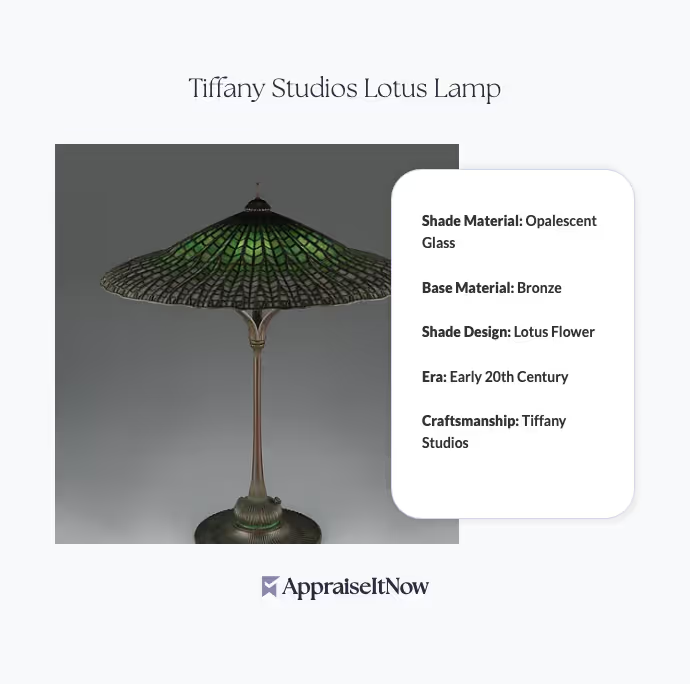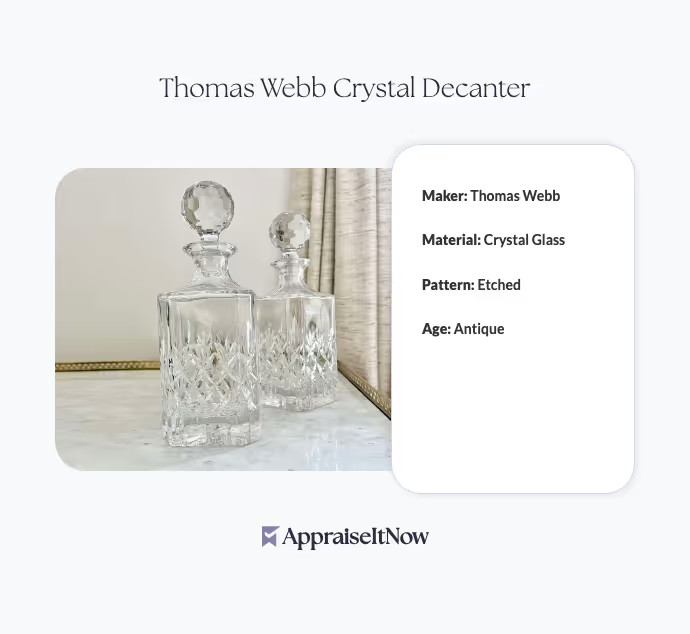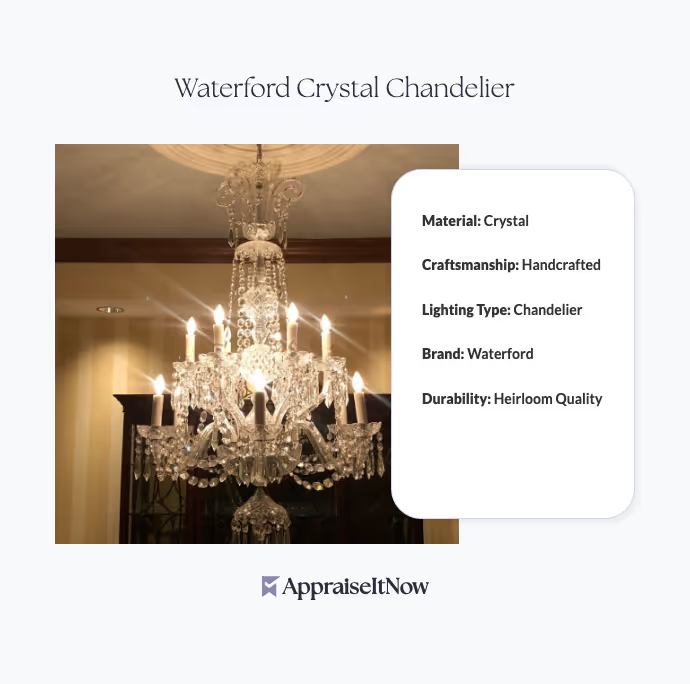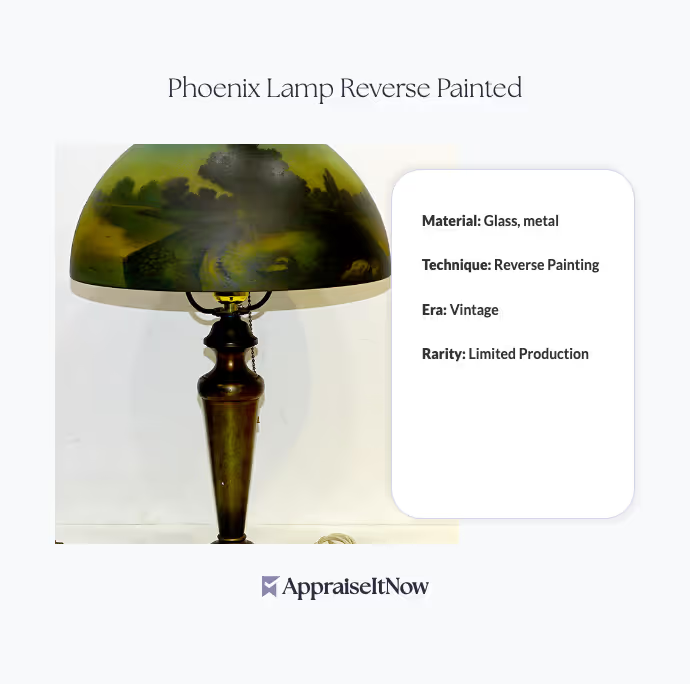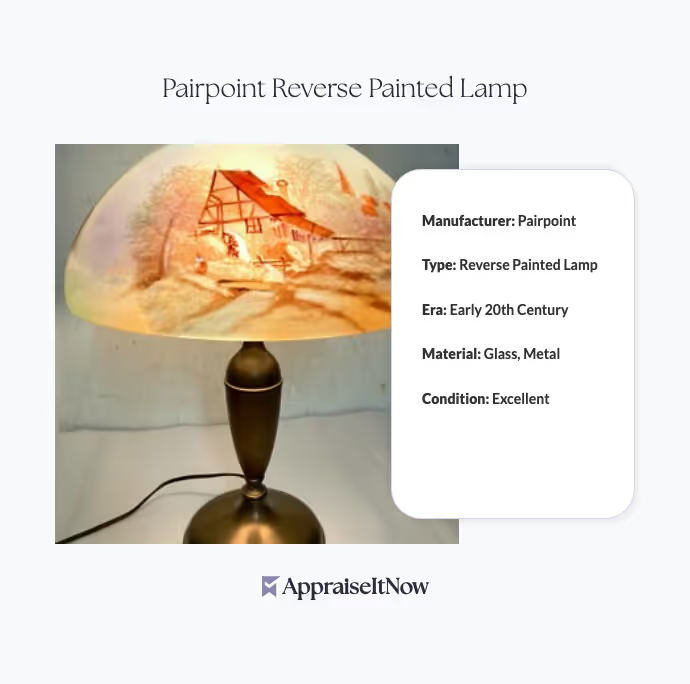<h1>How to Get Your Tiffany Studios Lotus Lamp Appraised</h1>
<p>If you own a Tiffany Studios Lotus Lamp, you're holding one of the most sought-after pieces of American art glass lighting from the early 20th century. These stunning lamps, valued between <strong>$75,000 and $95,000</strong>, represent a significant investment that deserves proper professional evaluation. Whether you're considering selling, seeking insurance coverage, or simply curious about your piece's worth, understanding how to get your lamp appraised correctly ensures you receive accurate documentation and fair market assessment.</p>
<h2>Why Professional Appraisal Matters for Tiffany Studios Lamps</h2>
<p>A Tiffany Studios lamp isn't just functional lighting—it's a masterpiece of craftsmanship combining hundreds of individually cut opalescent glass pieces arranged in an intricate lotus flower motif with a bronze base. This complexity means determining its value requires specialized expertise. When asking "<em>How do I know if my lamp is worth money?</em>" or "<em>How much can I sell my Tiffany lamp for?</em>", the answer depends on multiple technical factors that only qualified appraisers can properly assess.</p>
<p>Getting a professional appraisal provides several critical benefits. You receive certified documentation acceptable to insurance companies, auction houses, and courts. A qualified appraiser validates authenticity—a crucial distinction since countless Tiffany-style reproductions flood the market. They also establish fair market value based on recent comparable sales, condition analysis, and historical significance, protecting you whether you're buying, selling, or protecting your asset through insurance.</p>
<div class="callout tip"><p><strong>Critical Insight</strong></p>
<p>The difference between an authentic Tiffany Studios lamp and a reproduction can exceed $70,000. Professional authentication is essential for any transaction.</p></div>
<h2>Distinguishing Authentic Tiffany Studios Lamps from Reproductions</h2>
<p>Understanding the answer to "<em>What's the difference between a Tiffany lamp and a Tiffany style lamp?</em>" becomes essential before seeking appraisal. Authentic Tiffany Studios pieces were handcrafted between 1900 and the early 1930s by the Tiffany Studios workshop in New York. Reproductions and "Tiffany-style" lamps, while sometimes beautiful, command fraction of the original price.</p>
<p>When evaluating your lamp before professional appraisal, examine key authentication markers. Original Tiffany Studios lamps feature the distinctive <strong>Tiffany Studios marking</strong> on the bronze base—typically stamped with the company name and sometimes a number. The glass pieces show individual variation in color and thickness, reflecting hand-cutting techniques. The bronze base demonstrates quality casting with proper patina development over time. Your appraiser will scrutinize these details as part of the <a href="/blog/what-do-appraisers-look-for-when-appraising-antique-artwork">artwork appraisal</a> process.</p>
<div class="callout note"><p><strong>Authentication Marker</strong></p>
<p>Genuine Tiffany Studios lamps feature individually hand-cut glass pieces with slight variations, never perfect uniformity like machine-cut reproductions.</p></div>
<h2>What Appraisers Examine in Tiffany Studios Lotus Lamps</h2>
<p>Professional appraisers evaluating your Tiffany Studios Lotus Lamp assess multiple dimensions to establish accurate value. The shade composition—hundreds of precisely arranged opalescent glass pieces in the lotus flower design—receives intense scrutiny. Appraisers examine for cracks, repairs, replacements, and color consistency. Missing or replaced glass pieces significantly impact value, as restoring original Tiffany glass requires specialized expertise and materials.</p>
<p>The bronze base undergoes equally thorough inspection. Quality bronze casting demonstrates superior artistry and durability, while crude casting or thin metal indicates lower-quality reproductions. Original patina, the natural oxidation layer developed over a century, typically adds value over cleaned or refinished bases. However, structural integrity takes priority—any damage to the base that compromises the lamp's stability reduces its worth considerably.</p>
<p>The electrical components present an interesting appraisal consideration. Original Tiffany Studios Lotus Lamps from the early 1900s featured period-appropriate wiring and fixtures. Modern appraisers understand whether your lamp retains original electrical elements or underwent necessary updates for safety. Functional electrical systems are expected; however, overly modern replacements using incompatible materials can reduce authenticity value slightly.</p>
<h2>Researching Comparable Sales and Current Market Value</h2>
<p>Before scheduling your appraisal, understanding the current market helps you prepare informed questions. Tiffany Studios lamps have appreciated substantially over recent decades. The estimated value of <strong>$75,000 to $95,000</strong> for a Tiffany Studios Lotus Lamp reflects strong collector demand and limited supply—only a finite number were produced during the studios' active years.</p>
<p>Recent auction data and private sales inform professional appraisals. When collectors ask "<em>Are Tiffany lamps worth anything?</em>" the resounding answer is yes, particularly for authenticated Tiffany Studios originals. Historical sales data shows consistent appreciation, with prime examples commanding the upper end of estimated ranges. Understanding this market context helps you evaluate whether an appraiser's valuation aligns with current trends in the <a href="/types/memorabilia-and-collectibles">memorabilia and collectibles</a> market.</p>
<h2>Finding a Qualified Appraiser for Fine Glass and Lighting</h2>
<p>The critical step in appraising your Tiffany Studios Lotus Lamp is selecting an appraiser with specific expertise in decorative arts and <a href="/blog/appraising-fine-glass-and-crystal-valuing-delicate-glassware-and-artistic-creations">fine glass and crystal</a>. Look for appraisers credentialed through recognized organizations like the <strong>American Society of Appraisers (ASA)</strong>, the <strong>International Society of Appraisers (ISA)</strong>, or the <strong>Appraisers Association of America (AAA)</strong>. These designations indicate professional standards and adherence to the <strong>Uniform Standards of Professional Appraisal Practice (USPAP)</strong>.</p>
<p>Your appraiser should demonstrate specific knowledge of Tiffany Studios' production methods, design variations, and market history. When interviewing potential appraisers, ask about their experience with decorative arts lighting and whether they maintain current market databases for comparable sales. Request references from previous clients and confirmation of their insurance and liability coverage. An appraiser specializing in <a href="/types/antique-furniture">antique furniture</a> or <a href="/types/household-goods">household goods</a> may lack the specialized knowledge necessary for accurate decorative lighting appraisals.</p>
<div class="callout tip"><p><strong>Selection Criteria</strong></p>
<p>Verify your appraiser holds credentials from recognized professional organizations and specializes specifically in decorative arts or fine glass, not just general antiques.</p></div>
<p>AppraiseItNow connects you with credentialed experts across the U.S. who specialize in <a href="/types/antique-artwork">antique artwork</a> and decorative arts appraisals. Our network includes appraisers with AAA, ISA, ASA, and CAGA credentials, ensuring your Tiffany Studios Lotus Lamp receives expert evaluation from professionals who understand this specialized market segment.</p>
<h2>Preparing Documentation for Your Appraisal Appointment</h2>
<p>When scheduling your appraisal, gather all relevant documentation in advance. Compile photographs from multiple angles—overhead, side views, close-ups of the base marking, and detailed images of the shade showing the lotus pattern and any interesting glass color combinations. If you have any provenance documentation, such as purchase receipts, previous appraisals, or family records indicating when and where the lamp was acquired, bring these materials.</p>
<p>Note any repairs or restoration work performed on the lamp. Understanding the lamp's history—particularly whether it's been professionally conserved—helps appraisers contextualize their findings. If the lamp currently displays any damage, cracks, or imperfections, having these documented beforehand allows the appraiser to assess whether damage occurred before or after your ownership, which can affect valuation discussions.</p>
<p>Prepare a clean workspace for the appraisal. Your appraiser will need adequate table space to examine the lamp closely, adequate lighting to assess glass colors and bronze patina accurately, and space to photograph the piece. Having the lamp available for hands-on inspection, rather than relying solely on photographs, enables the most accurate assessment.</p>
<h2>Understanding the Appraisal Report and Your Lamp's Documentation</h2>
<p>Once your appraiser completes the examination, you'll receive a detailed USPAP-compliant appraisal report. This document serves multiple purposes—insurance documentation, estate valuation, sale preparation, or dispute resolution. A quality appraisal report includes the estimated fair market value of <strong>$75,000 to $95,000</strong> (or more specific range based on your individual lamp's condition), detailed condition assessment, authentication findings, and comparable sales analysis supporting the valuation.</p>
<p>The report typically includes high-quality photographs documenting the lamp's current condition, detailed descriptions of materials and construction methods, and any repairs or replacements noted during inspection. This comprehensive documentation becomes invaluable if you later need to file an insurance claim, prove authenticity for sale purposes, or settle estate valuations. When asking "<em>Where is the best place to sell a Tiffany lamp?</em>" or considering auction house consignment, having professional appraisal documentation significantly enhances buyer confidence and competitive bidding.</p>
<h2>Insurance and Asset Protection Considerations</h2>
<p>Your Tiffany Studios Lotus Lamp likely exceeds the coverage limits of standard homeowners insurance. Valuable <a href="/types/personal-property">personal property</a> in this price range requires specific coverage through valuable items or fine arts policies. An appraisal provides essential documentation for obtaining proper insurance. You'll present the appraiser's report to your insurance agent, who then establishes agreed-upon value coverage protecting your investment at the full appraised amount.</p>
<p>Many collectors ask "<em>How do I know if I have an authentic Tiffany lamp?</em>" specifically because authenticity directly affects insurance eligibility. Insurance companies require certified appraisals confirming authenticity before issuing coverage on pieces of this value. Should damage or loss occur, your appraisal documentation becomes the foundation for claim resolution, ensuring you receive fair compensation based on proven fair market value rather than disputed estimates.</p>
<div class="callout note"><p><strong>Insurance Essential</strong></p>
<p>Professional appraisal documentation enables insurance companies to provide appropriate coverage, protecting your $75,000-$95,000 investment against theft, damage, or loss.</p></div>
<h2>When Your Lamp Deserves Reappraisal</h2>
<p>Markets for decorative arts shift over time, and your lamp's value may change. Consider obtaining updated appraisals every 3-5 years, particularly if market trends favor Tiffany Studios pieces or if you've invested in professional conservation. When preparing to sell or transfer your lamp to beneficiaries, current appraisals reflect today's market values rather than relying on older documentation.</p>
<p>Significant changes in condition also warrant reappraisal. If you've had professional restoration work performed or if damage has occurred since your last appraisal, updated valuation ensures your documentation remains current and accurate. For estate planning purposes, recent appraisals provide executors with precise asset valuations for distribution or liquidation decisions.</p>
<hr />
<div class="callout note"><p><strong>Key Takeaway</strong></p>
<p>A certified appraisal from a qualified decorative arts specialist gives you authenticated value documentation for your Tiffany Studios Lotus Lamp, ensuring accurate insurance coverage, confident sale preparation, and professional asset management. Whether you're buying, selling, or protecting your investment, professional appraisal provides the expert assessment and documentation your $75,000-$95,000 treasure deserves.</p></div>
